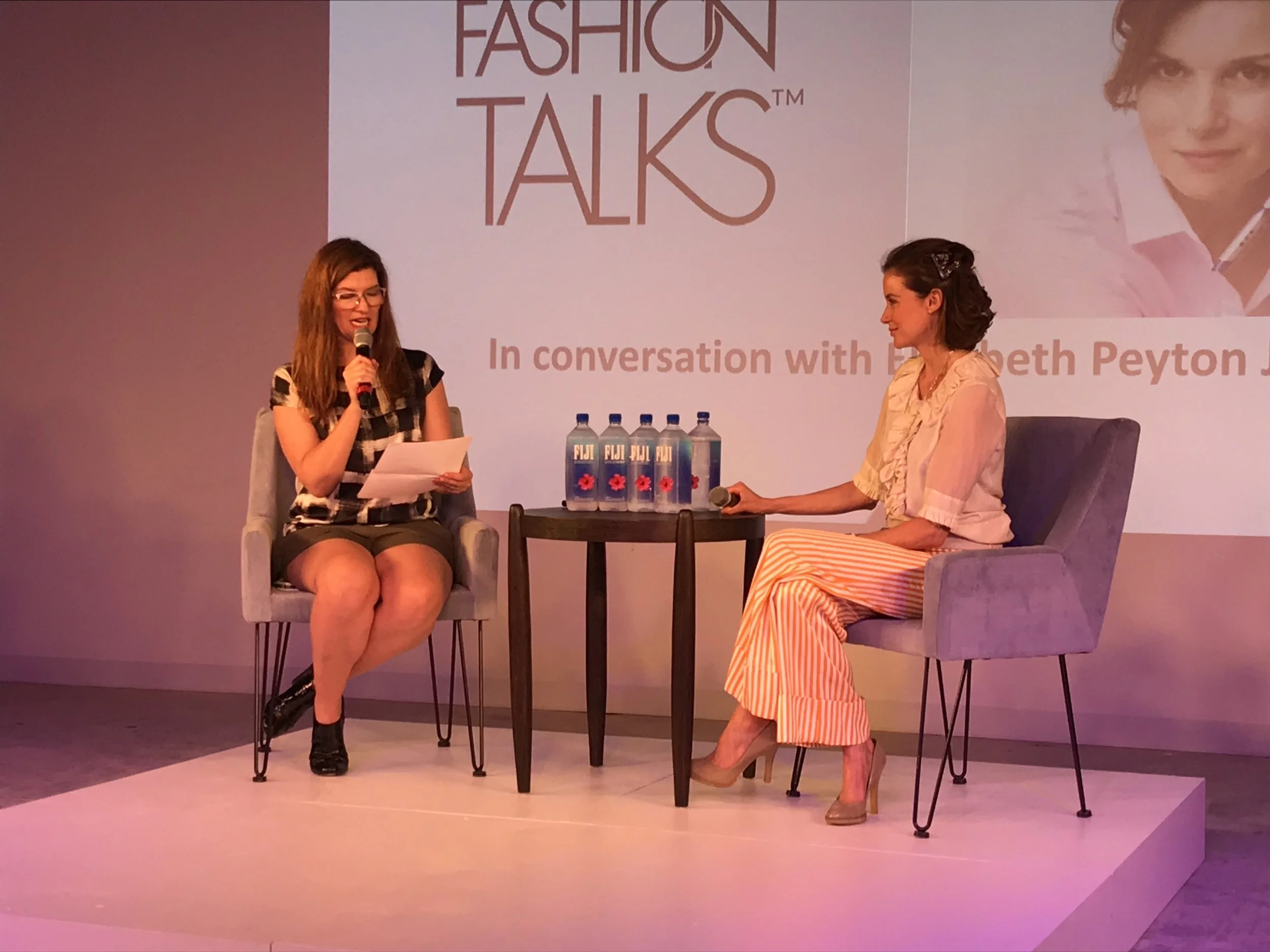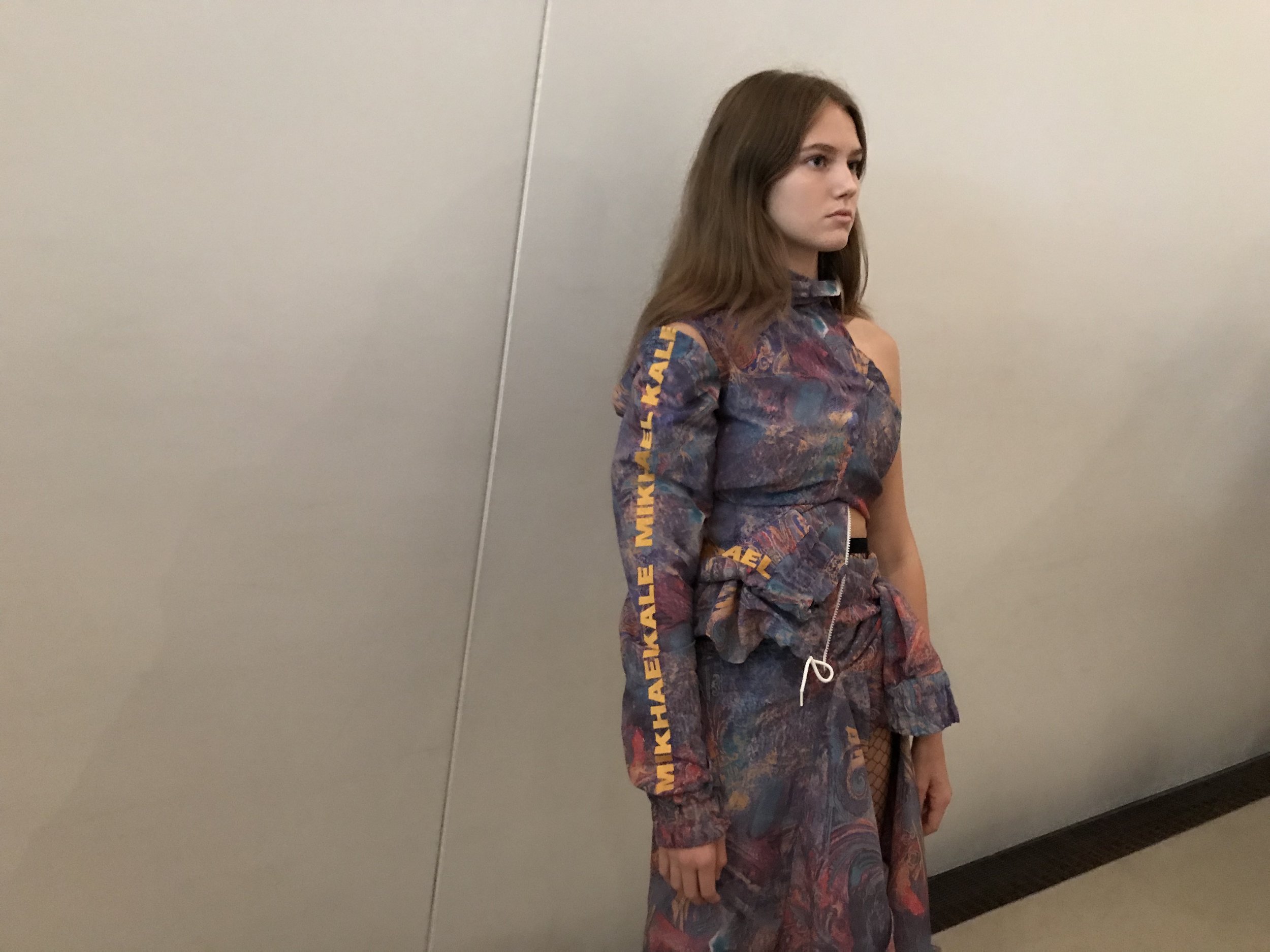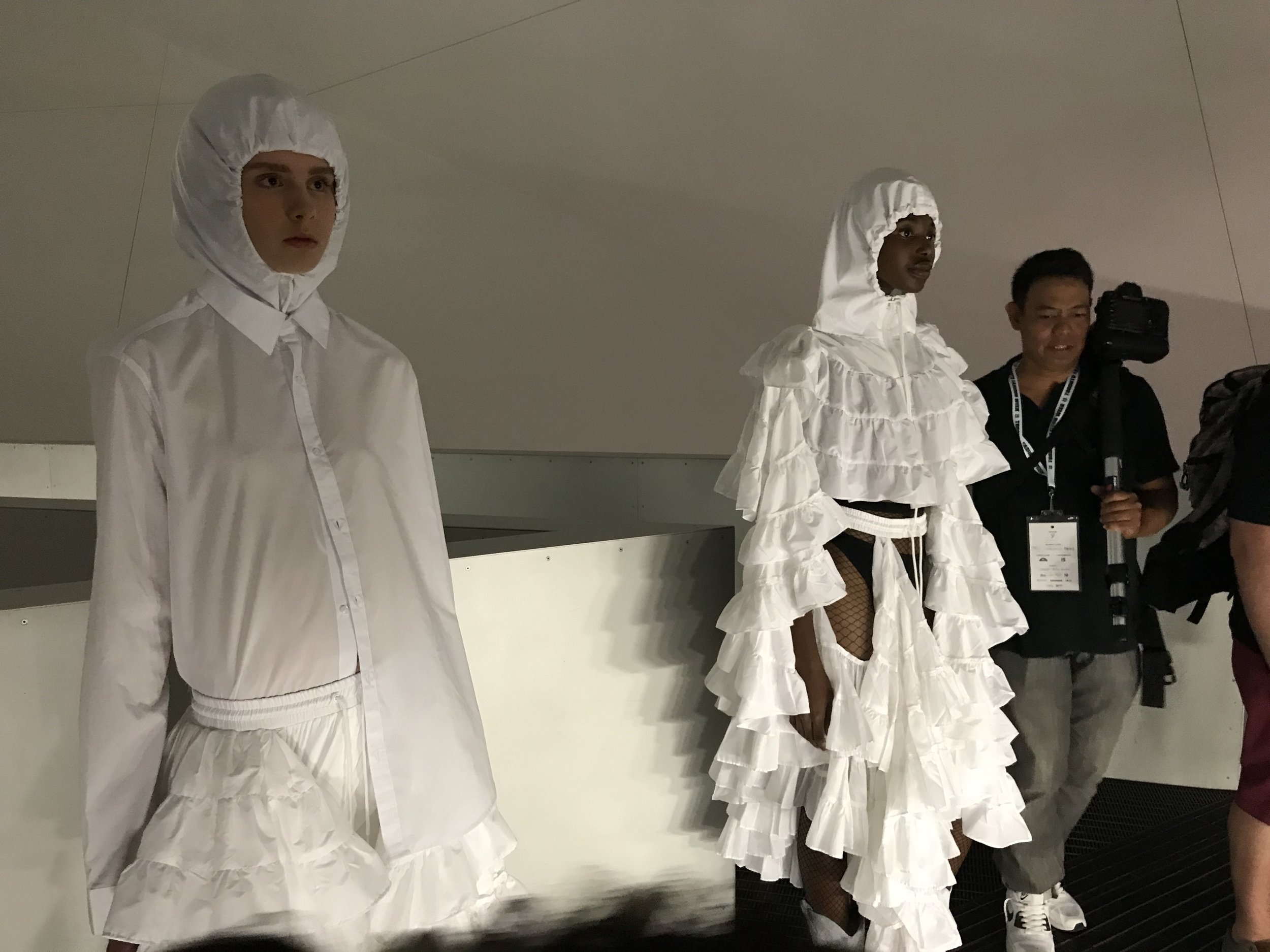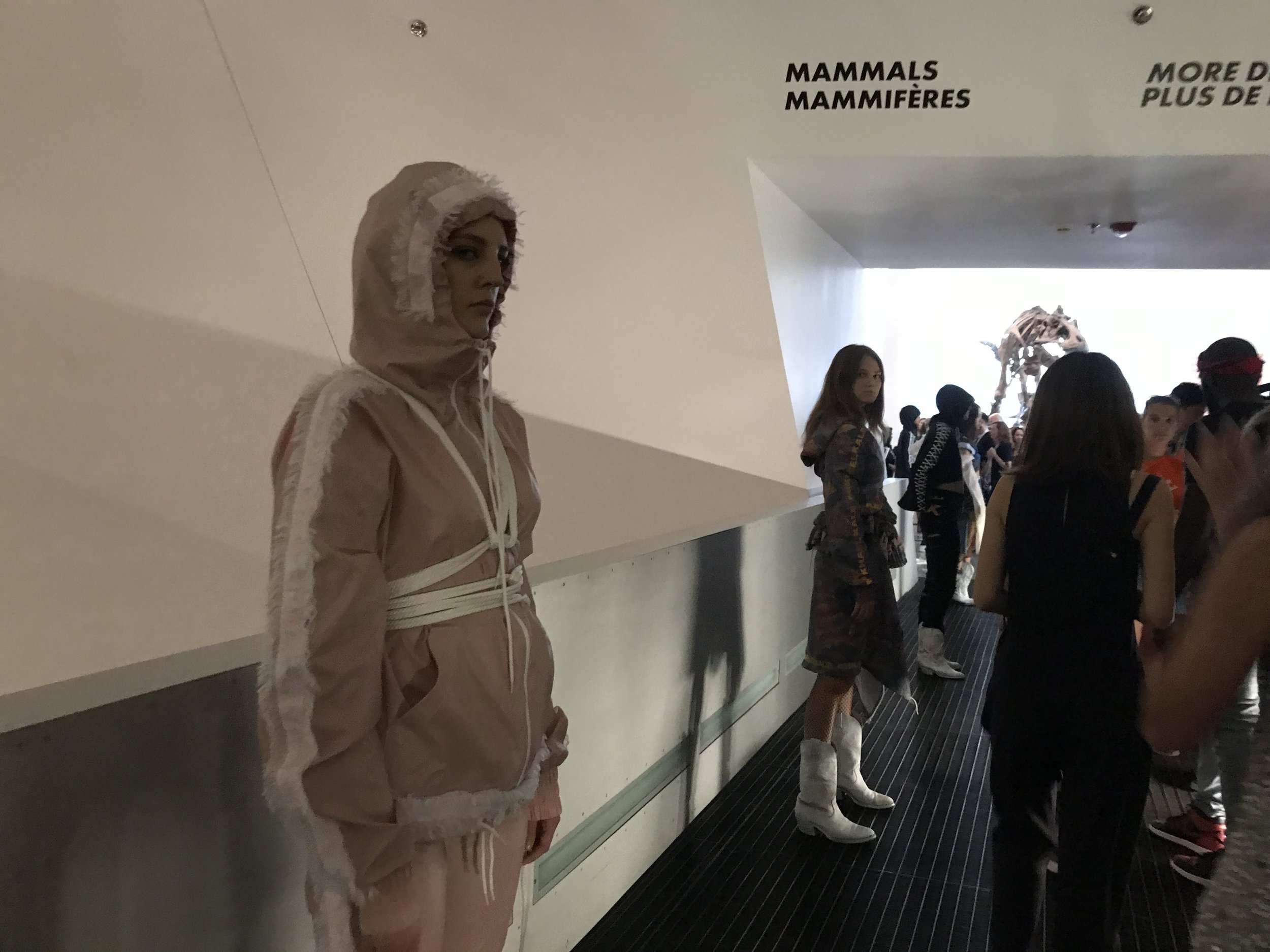'Let's take a look at the industry': Fashion activist on eating disorders, debt & need for better standards
To kick off Toronto Fashion Week, activist and founder of the Responsible Trust for Models Elizabeth Peyton Jones spoke about her experience in the industry and desire to create safer work environments, especially for children and teens. Joining her at the Reset Studio was host of the Fashion Talks series Donna Bishop. They discussed how models need the same workplace standards as other industries, what needs to change and how agencies can play a role.
Peyton Jones worked as a health care practitioner for 20 years and said she came across many models who had eating disorders and mental health problems.
"People were very fascinated by size 0 and the fact that models were so skinny. Everyone was saying, 'Feed them. Feed them.' So I thought let's take a look at the industry and see what's going on in the industry that's causing eating disorders and skinny models," she said.
Instead of focusing on the food, Peyton Jones wanted to dive deeper into why models were starving themselves. What she discovered was "alarming," she said, from the abuse of power to sexual misconduct. But one of the biggest problems that led to a power imbalance between models, photographers and agencies was debt poverty.
"Models were not being paid on time," she said, "so sometimes it would be eight months to a year before they were paid, which meant they went into what's called debt poverty... It's a term for modern slavery because no matter how much they were working, they were never able to pay off their debt."
This creates a huge divide, with young models in debt and no chaperones or workplace standards. Models are scouted young, at around 12 or 13, so they are exposed to abnormal situations that become normal to them, said Peyton Jones. For example, a teen who is on set and asked by a photographer to be semi-nude in a photo. The teen calls the agency because they don't have a parent or guardian on set. The agency doesn't force them to do it, but reminds them of their debt. The teen has also been waiting for an opportunity and they don't want to blow it. They know they need the money so they decide to do it—or, if they decide against it, they get less jobs and eventually lose their agency.
"If somebody can't pay to live, they will do pretty much anything in order to earn that money," she said.
Three years ago, Peyton Jones was barely able to have a conversation about the dark underbelly of the fashion industry. This was before the #MeToo and Harvey Weinsten era, she said. Now, supermodel Naomi Campbell and others are behind her and pushing for change. Her organization, Responsible Trust for Models, puts a verification process in place so models know which agencies meet its standards.
The trust has made partnerships with companies to try and ensure their standards are met. There is a call to action online and it breaks down how the trust benefits everyone in the industry, from models to fashion brands.
Afternoon at the museum
After the Fashion Talks discussion, I walked over to the Royal Ontario Museum for the Mikhael Kale show. I've been watching his shows since the first fashion week I attended and I always look forward to his dramatic designs. A funky band played on the museum's second level as guests waited with the gigantic dinosaur in the lobby. When we got the green light, everyone made their way up as the group of musicians played their tunes (complete with a drummer, saxophonist and more).
Nothing like a little funky music to get everyone in the mood #fashionweek @ROMtoronto #tfw pic.twitter.com/5HmFrDEuog
— Courtney Greenberg (@CourtneyGBerg) September 4, 2018
Models lined the wall decked out in Kale's gear, from a frilly, delicate white ensemble to a cut-out tartan outfit. The collection was unlike other Kale shows I've seen, and was refreshing and unique against the backdrop of the ROM. Not the dainty evening gowns I've come to expect but captivating nonetheless.
And now a mixture of dinosaurs and fashion #fashionweek @ROMtoronto pic.twitter.com/u6PhBwWMZS
— Courtney Greenberg (@CourtneyGBerg) September 4, 2018







